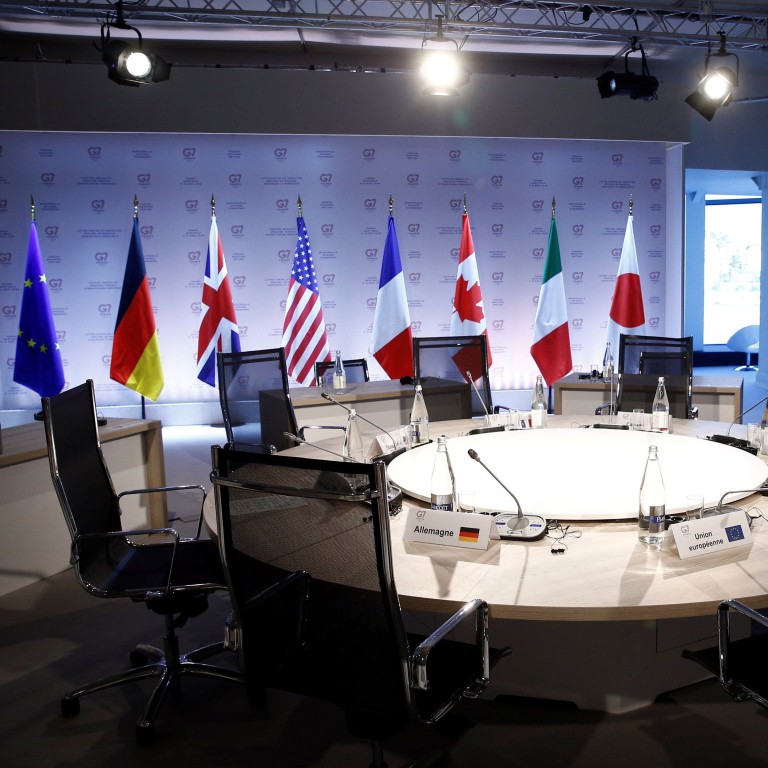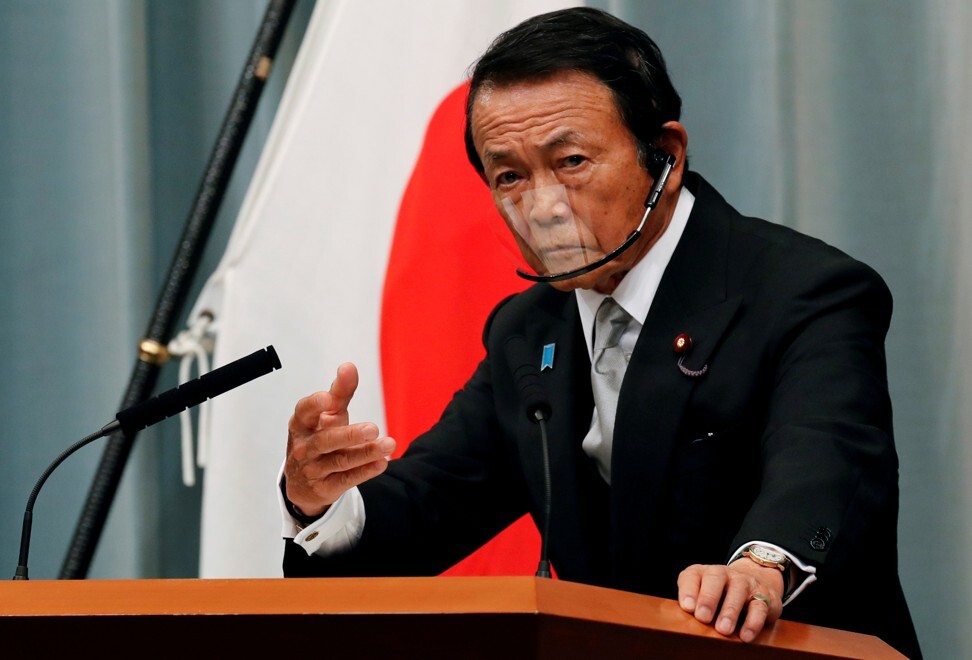
G7 to press China on debt relief for coronavirus-hit poor nations
- Seven developed nations backed extending G20 Debt Service Suspension Initiative beyond 2020 but acknowledge ‘shortcomings’ of delivery
- China resists calls from G7 and World Bank to include the China Development Bank in the debt initiative
The G7 ministers said the “DSSI implementation has faced shortcomings that have prevented the initiative from delivering its full potential”.
The G7 ministers encouraged private creditors and banks to “voluntarily” take part in the debt payment suspension and seemed to criticise China for not fully taking part in the initiative.
Coronavirus: G20 debt relief for African nations may be too little too late
In a thinly veiled swipe at China, a joint statement released by the ministers said they “strongly regret the decision by some countries to classify large state-owned, government-controlled financial institutions as commercial lenders and not as official bilateral creditors”.
The countries did this “without providing comparable treatment nor transparency, thus significantly reducing the magnitude of the initiative and the benefits of the DSSI for developing countries”, the G7 ministers’ statement said.

After the virtual meeting on Friday, Japanese Finance Minister Taro Aso said “China’s participation in the DSSI is totally insufficient” and called for greater Chinese involvement. According to the European Network on Debt and Development (Eurodad), Japan’s contribution to the DSSI was about a tenth of China’s.
Of the amount due between May and December this year from poor nations taking part in the G20 debt plan, 70 per cent, or US$7.17 billion, was to China. That amount is expected to rise to US$10.51 billion, or 74 per cent of the total, next year.
Coronavirus: China under pressure to detail debt relief before G20 talks
Mark Sobel, non-resident senior adviser at the Centre for Strategic and International Studies and a former US Treasury official, tweeted that “G7 appears to be recognising that the voluntary nature of the DSSI is not working well and is now calling for a more muscular approach”.
But the common framework was a statement of principles and the rest of the G20 – particularly China – would need to get on board with it, said Sobel.
“But that may be a challenge. Chinese money, not G7, is largely at stake,” Sobel said. “The more muscular rhetoric falls short of the greater compulsion needed for the DSSI to work. The DSSI is a good idea in principle. Execution still disappointing.”
Malpass said in July that there was the need for debt restructuring information disclosure to avoid the secretive debt rescheduling that was under way in some countries, such as Angola and Laos, often with undisclosed grace periods and terms. This followed reports that China had agreed to a three-year debt moratorium for Angola, which included commercial debt from Bank of China and CDB.
China has resisted calls from the G7 and the World Bank to include the China Development Bank in the DSSI.
“Unlike China Eximbank, CDB mainly lent at commercial rather than concessional terms, which is presumably why Beijing argues that it should be treated in the same way as other commercial lenders,” Mark Bohlund, a senior credit research analyst at REDD Intelligence, said in a recent report. CDB’s lending to DSSI-eligible countries was heavily concentrated in Angola and Pakistan, meaning the rumoured three-year debt moratorium with Angola could go a long way to untying this knot in the G20 action plan, Bohlund said.
For its part, China has pushed for the World Bank to be included in the DSSI, but so far this has been resisted by other World Bank/IMF members. Chinese Finance Minister Liu Kun has said that the World Bank “should lead by example in suspending debt service”, or its role as a global leader in multilateral development will be weakened.
China has also suggested through Yi Gang, governor of China’s central bank, that the IMF should issue new Special Drawing Rights (SDR) and allocate them to Covid-19 afflicted countries through existing financing programmes.
The G7 ministers said they supported extending the DSSI in the context of a request for IMF financing. They said the methods of the extension should reflect the G20’s commitment to transparency and creditor coordination.
The ministers said they supported the development of a common framework for future debt treatments beyond the DSSI, to be agreed by the G20 and Paris Club by the time of the G20 Finance Ministers and Central Bank Governors’ meeting in October.
The framework should set out provisions for the scope of creditor participation and transparency, and call for coordinated debt relief on a case-by-case basis in the context of a fully-fledged IMF programme, the G7 statement said.

